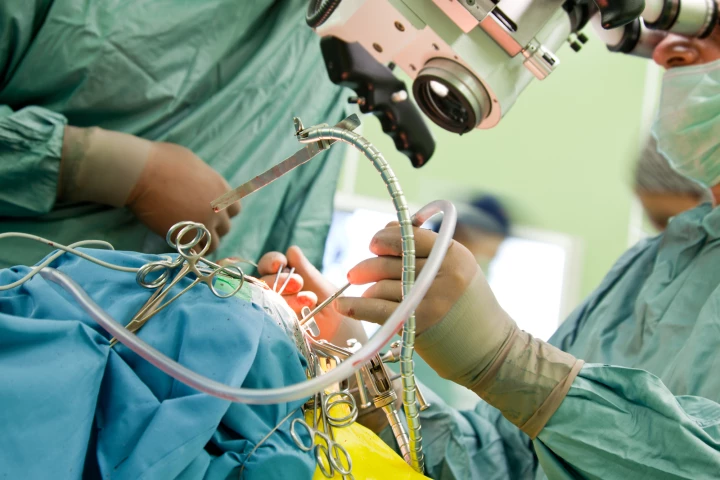Robot Surgeons
-
Doctors have successfully operated on a pig – from 9,300 km (5,780 miles) away. Surgeons in Switzerland used a game controller to perform an endoscopy in Hong Kong, paving the way for remote procedures in humans where local expertise isn’t available.
-
Six doctors in Nebraska have successfully operated a surgical robot aboard the ISS. This time, the operation was on only rubber bands, but the milestone could have meaning for future missions to Mars or for rural operating rooms here on Earth.
-
Researchers have developed a scalpel with built-in force-measuring sensors and coupled it with a machine-learning model that could streamline how doctors are trained to perform surgery and pave the way for automated surgical devices.
-
It's normal to feel anxious about going under the knife, but stress before surgery can range from mild anxiety to overwhelming fear. Now, researchers believe a tech more often seen in video games – augmented reality – can help relieve that anxiety.
-
In an exciting step forward in surgery advances, the first successful liver transplant performed by a robot has taken place in the US, offering minimal invasiveness and speedy recovery time. Clinics now plan to ramp up wider use of this innovative tech.
-
Researchers at Harvard Medical School have developed a new AI-powered tool to help brain surgeons combat cancer. CHARM rapidly evaluates tumorous tissue during surgery to help professionals make on-the-spot decisions about how to proceed.
-
In robotic surgery, doctors control the movement of a mechanical arm through joysticks, knobs and other peripherals. A new exoskeleton system however, turns a doctor's hands into the controls and provides haptic feedback to simulate actually touching a patient's innards.
-
A new system called HeroSurg, developed by researchers at Deakin and Harvard Universities, is set to increase what surgeons can achieve via robotic surgery, using a haptic feedback system to provide a sense of touch.
-
A robot guided by 3-D ultrasound and artificial intelligence has demonstrated it can locate lesions in simulated breast and prostate tissue and take biopsies without human assistance.
-
Robotic technology that predicts the movement of the heart as it beats enables surgical tools to move in concert with each beat, which will allow surgeons to operate on a beating heart as if it were stationary.
-
Duke University has developed a robot that can detect and remove tiny pieces of metal from human bodies autonomously.










